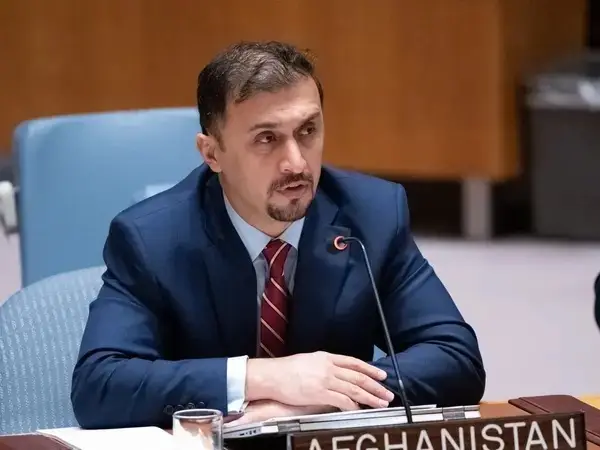RASC News Agency: Naseer Ahmad Faiq, the acting head of Afghanistan’s delegation to the United Nations, clarified in a media interview that the suspension of Afghanistan’s voting rights at the United Nations is due to technical reasons and not political ones. Faiq explained that efforts are underway to restore Afghanistan’s voting rights in the General Assembly and that this issue will be resolved through an administrative process.
On Thursday, May 16th, Faieq stated that the suspension of voting rights is not a new issue within the assembly. It results from the non-payment of membership dues, which affects many countries, including Afghanistan, and is subject to the administrative procedures of the United Nations. The Afghanistan representative at the UN noted that due to the office’s lack of communication with the Taliban-controlled Ministry of Foreign Affairs since the Taliban takeover, they were unable to pay the $200,000 membership fee, leading to the temporary suspension of voting rights.
Critics of the Taliban have reacted strongly to this situation, arguing that the only voice of Afghanistan in the UN General Assembly should not be silenced, as the Afghanistani people have no other channel to express their needs and demands. In response to the suspension, Amrullah Saleh, the former vice president, wrote on his social media page that “the suspension of Afghanistan’s voting rights at the UN has nothing to do with not paying the country’s membership dues.” He claimed that this reason is “a lie and a deception by global powers and organizations.”
Saleh further expressed his willingness to settle Afghanistan’s UN debts, stating he would cover “past debts and the membership dues for the next three years” for Afghanistan’s representation. Naseer Faiq responded to the former vice president’s remarks, reiterating that the suspension of voting rights at the UN is a technical issue, not a political one.
He explained that, according to the UN Charter, countries that fail to pay their membership dues for two consecutive years have their voting rights suspended. Faiq concluded by noting that Afghanistan is not alone in this situation, as several other countries are facing similar issues, which have also occurred in the past.






